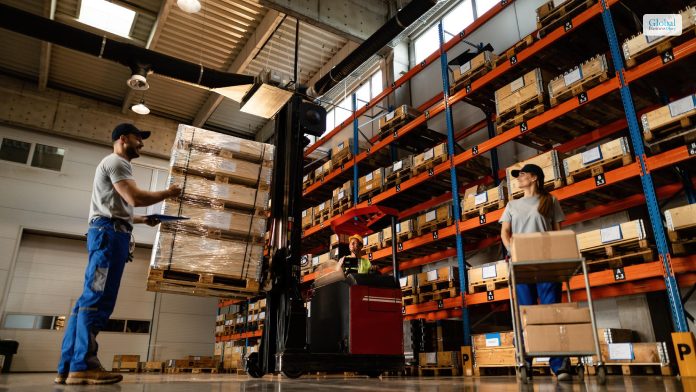How To Keep Your Employees Motivated

The ever-coveted “employee of the month” is old news. Companies have developed and adopted increasingly creative ways to recognize and reward team performance. From team-building activities to employee appreciation luncheons, businesses are investing in employee recognition programs to keep their employees motivated.
Everyone has experienced a lack of motivation at work. It can become tiresome commuting to the office (even if it’s from the bedroom to the couch), responding to boring emails, and working on the same projects. Happiness and motivation don’t just benefit the employee; they are directly related to a company’s success. One of the most important factors in employee productivity is motivation.
Employee motivation is multifaceted. Everyone has different needs and desires; that’s why employers at top companies are investing in employee recognition programs and benefits to keep their teams motivated. If your team needs motivation, consider some of these strategies:
Top 10 Ways To Keep Your Employees Motivated
1. Employee empowerment
Employees are more motivated when they feel like they have a say in how their work gets done.
Employee empowerment is the process of giving employees authority and responsibility to make decisions that affect their work. When employees are given a voice in their work, they are more likely to take ownership and be motivated to produce quality work.
It can be achieved through various methods, such as employee surveys, employee focus groups, and employee committees. By gathering feedback from staff, employers can get a better understanding of what motivates them and how they can be given more autonomy in their work.
Employers who empower their employees report higher employee satisfaction rates, increased employee productivity, and lower employee turnover rates. Allowing your team to have a say in their work leads to a more positive work environment and encourages employee creativity and innovation.

2. Flexible work arrangements
Offering employees flexible work arrangements gives them more control over their lives and can lead to a more satisfied workforce. For example, employees may appreciate the ability to telecommute occasionally or work compressed hours. Now that 16% of the global workforce works fully remotely and 62% work remotely on occasion, consider jumping on board and allowing your team to work from home. Think they’ll be less motivated at home? There are countless resources showing how to keep your remote workforce motivated.

3. Challenging work assignments
Giving employees challenging work assignments helps them stay engaged and motivated in their jobs. When employees are given new tasks that test their skills and abilities, they are more likely to be productive and innovative.
Challenging work assignments can also help employees learn new skills and grow their abilities. When employees feel like they are constantly learning and growing, they are more likely to be engaged in their work. Providing employees with development opportunities is a great way to show appreciation for their hard work.

4. Employee recognition
One of the simplest and most effective ways to motivate employees is to recognize their accomplishments. Employee recognition can come in many forms, such as verbal praise, public acknowledgment, awards, and bonuses. Not only do employees feel appreciated when their work is recognized, but they are also encouraged to continue working hard while meeting or exceeding expectations.
Employee recognition programs can also create a sense of community by encouraging employees to connect with their colleagues and develop stronger relationships at the workplace. Motivation is contagious!
If it sounds daunting to launch an employee recognition program in your company, consider using one of the many online resources that already exist, like the 360 employee recognition platform from Terryberry.

5. Training and development opportunities
Providing employees with training and development opportunities helps them grow professionally and stay motivated in their jobs. When employees feel like they are learning and growing, they are more likely to be happy and productive at work. Platforms that you already use, like LinkedIn, offer courses and development opportunities so maybe start there.

6. Positive workplace culture
Positive workplace culture is key to employee motivation. Employees feel more motivated when they are part of a team that is friendly and supportive. Company culture can easily be overlooked, but a positive workplace also encourages employee engagement and creativity.

7. Regular feedback
Employees crave feedback, both positive and negative. Giving employees regular feedback allows them to understand how they are doing and whether they are meeting expectations. Providing feedback also allows employees to correct any mistakes they may be making and improve their performance over time.

8. Opportunities for advancement
Employees are motivated when they have goals to aspire to and opportunities for advancement within their company. Offering employees career growth opportunities shows that the company is investing in them and has faith in their abilities.

9. Financial incentives
Financial incentives such as bonuses, pay raises, and stock options are always motivating for employees. Offering financial incentives shows that the company values its employees’ hard work and dedication.

10. Work-life balance
Allowing employees to balance their work life with their personal life is essential for employee motivation. Employees who feel they can manage their work-life balance are more likely to be productive and satisfied with their jobs.

Conclusion
By implementing these employee motivation strategies, companies can ensure that their employees stay motivated, productive, and engaged in their work. With a motivated workforce, businesses can reach new heights of success.
Additional:













